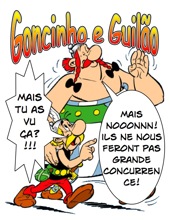|
Translation - Spanish-English - tu silencioCurrent status Translation
Category Song | | | Source language: Spanish
Como quien tira de una cuerda que se romperá,
tirar, tirar, tirar, tirar, tirar...
Como sin darse cuenta rozar un poco más,
los ojos aún cerrados para no afrontar
que el aire es de cristal,
que puede estallar,
que aunque parezca extraño, te quiero devorar.
Que el aire es de cristal,
que puede estallar,
que aunque parezca extraño, te quiero devorar |
|
| | TranslationEnglish
Translated by  Urunghai Urunghai | Target language: English
Like somebody pulling a string that's going to break, pulling, pulling, pulling, pulling, pulling...
Like unconsciously touching it a little bit more,
eyes still closed to avoid being confronted with
the fact that the air is made of crystal
that could burst
that even though it looks strange, I want to devour you.
That the air is made of crystal
that could burst
that even though it looks strange, I want to devour you.
| Remarks about the translation | I'm aware that this isn't the best English around, but I'm sure you get the message and could edit it a bit if necessary, Kafetzou! |
|
Last validated or edited by kafetzou - 28 September 2007 00:32
Latest messages | | | | |
26 September 2007 14:57 | | 
goncinNumber of messages: 3706 | I think the verbs on 2nd verse must come on infinitive: "to pull, to pull, to pull, to pull, to pull".
Why not "...air is made of crystal"?
"que aunque parezca estraño" -> "that although it looks strange"? | | |
26 September 2007 15:10 | | | That even if it looks strange? | | |
26 September 2007 15:56 | | | even though it looks strange?  | | |
26 September 2007 16:04 | | | ↑ Muito melhor Ewok... hehe. | | |
26 September 2007 17:19 | | | You're right Goncin, those should be infinitives, but it just didn't feel right to translate "tirar" with "to pull" in this context... maybe "pulling... pulling..." is better?
Air made of crystal? Actually, why not? I'll edit.
@All: oopz, messed up aun with aunque, my bad. Hmmm, what's the best way to translate that concession? :/ | | |
26 September 2007 17:52 | | 
goncinNumber of messages: 3706 | Urunghai,
I'm not sure whether "pulling" (present participle) express the right meaning of the source. In Spanish, "tirar" denotes a tenseless action, that's why it comes in the infinitive and I guess it should be conserved in English.
As for "que aunque", please see Angelus' (Ewok's  ) solution above. | | |
27 September 2007 00:20 | | | "pulling" is also tenseless - it's the present participle . "to pull" would be incorrect here. | | |
27 September 2007 14:56 | | | Aha, I knew my English intuition wouldn't let me down! ^^ | | |
11 October 2007 13:01 | | 
iriniNumber of messages: 849 | Questiona (have to do with the Greek translation):
a) tirar means "throw" in general if I remember my pathetically little Spanish correctly. Is it an expression or a meaning that I don't remember in this case? The Spanish equivalent of pulling or maybe plucking a string?
b)"estallar" has been translated as "a thousand pieces" in Greek. It obviously doesn't have a literal meaning, it just means REALLY broken, broken to tiny pieces. Does it carry such connotations in Spanish?
It's a wonderful translation and I want to mark it high but first I have to approve it so any help will be most welcomed  | | |
11 October 2007 13:37 | | 
guilonNumber of messages: 1549 | Hi Irini,
1) "tirar" means to throw as well as to pull, "to pull a string" = "tirar de una cuerda",it is the most common word in Spanish for this meaning ("jalar una cuerda" would be the Latin American version)
2) "estallar" does imply bursting into pieces, it comes etimologically from "astellar" (to tear wood into chips) | | |
11 October 2007 16:51 | | 
iriniNumber of messages: 849 | Thanks a lot! So do you think that it would be better to edit the translation and put the Greek expression for "pulling/plucking the string" or leave it as it is? (It now says "somebody is throwing the string"  | | |
11 October 2007 17:11 | | 
guilonNumber of messages: 1549 | It means "pulling" in this context, without any doubt. I think you should edit. |
|
| |

